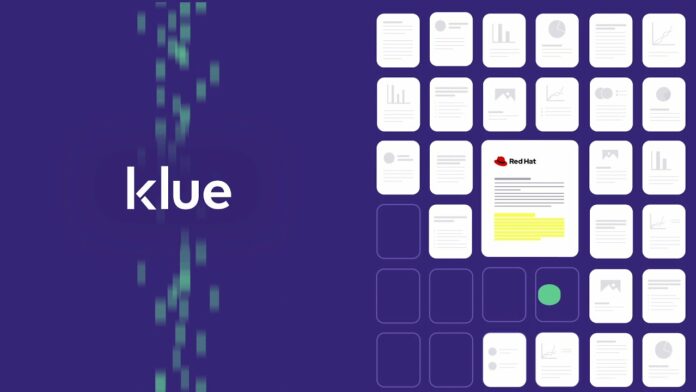Best Klue Alternatives And Competitors will be discussed in this article. Klue is a competitive intelligence platform that helps users streamline competitor analysis, distribute insights across their organization and make informed decisions on company messaging.
Using an automated web crawler, Klue searches across the internet and online sources for information about competitors’ product launches, offerings, changes in marketing, and price strategies. Klue collects competitor data from the web, social media, customer reviews, newsletters, press briefings, and releases. Additionally, users can add their own research insights about their company or competitors.
Once done with the collection process, Klue uses its proprietary AI systems to analyze data, remove irrelevant content, and curate actionable insights about your competitor’s operations.
To help you achieve your competitive intelligence targets, Klue does the following:
- Collects insights on competitors from multiple public sources
- Uses its AI algorithm to process intelligence faster, add context to multiple data points, and help you make sense of your competitor’s overall strategy
- Helps you create competitive content for your marketing strategies, including battlecards and boards around your competitors and trending topics
- Allows you to share your insights across multiple departments in your organization, leading to better company-wide planning and results
- Allows you to set targets and measure the success and impact of your marketing strategies in relation to your competitors
Klue makes it easy to collaborate across your organization using pre-existing tools. You can connect Klue to Slack, Salesforce, Sharepoint, and other internal tools for easier collaboration and a more streamlined workflow.
However, Klue has its limitations—at its core, it is a web listening tool and only provides access to public data. It also does not have a data storage function, offering limited usability outside of competitive intelligence roles.
Klue Pros:
- Comprehensive competitive research and tracking features
- High quality battlecard options
- Navigable, intuitive, and scalable platform
- Supports collaboration and integrations
- Offers high company data security
- Has a community forum for collaboration with other users
Klue Cons:
- Steeper learning curve than other tools
- Data storage occurs outside the platform
- Limited data sources—only public data
- No expert call analysis
- No SEC filings, earnings estimates, or financial reports
- No broker analysis
- No trade journals or newspapers
- No advanced search capabilities or sentiment analysis
Top 7 Klue Alternatives And Competitors In 2023
In this article, you can know about Klue Alternatives here are the details below;
If you are looking for a platform that can support job functions outside of just CI and that offers access to a wider array of data, here are some alternatives to consider:
1. AlphaSense
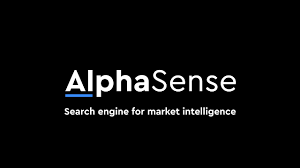
Best for: conducting comprehensive competitive research and analysis with advanced AI features for added speed, accuracy, and scope—all in one platform
AlphaSense is consistently ranked as an industry leader by TrustRadius and G2, and was recently recognized as one of the top 50 AI companies by Forbes.
Unlike Klue or other tools, AlphaSense is an all-in-one market intelligence platform that helps you make swifter, more confident decisions and access even deeper competitor insights, at scale.
Besides competitive intelligence, multiple corporations rely on AlphaSense for business strategy and market landscaping. Financial services professionals find AlphaSense useful for messaging research, market monitoring, due diligence, idea generation, and deal sourcing.
AlphaSense’s extensive content universe provides access to 10,000+ private, public, premium, and proprietary content sets that include company filing, trade journals, news briefings and press releases, expert call transcripts, broker research, and regulatory filings.
AlphaSense also uses smart search and AI capabilities to reduce time spent conducting research and analysis while increasing confidence in your research findings, so you can go from reactive to proactive.
In addition, AlphaSense also features two proprietary add-on content sets:
- Stream in AlphaSense – Stream is a library that hosts transcripts to over 28,000+ expert calls with industry professionals, brokers, subject matter experts, former and current executives, competitors, and customers. Stream observes strict legal compliance throughout the content development process. Using a team of trained compliance review experts, all proprietary client information is protected.
- Wall Street Insights® – The leading collection of equity research conducted by 1,000+ independent sell-side firms that covers global and regional sector themes, industries, and companies. These resources are available in AlphaSenses, both indexed and searchable.
AlphaSense also comes with several unique capabilities and features that will streamline and enhance your research process. These include:
Automated Monitoring
The AlphaSense platform allows you to set up automatic, real-time updates on emerging trends, news, markets, industries, and changes in activity by competitor companies. For your competitive intelligence needs, AlphaSense can snapshot companies and topics of interest regularly and send you actionable insights.
Smart Synonyms™
AlphaSense also uses AI-based Smart Synonyms™ technology—a capability that studies keywords and intent behind your search engine queries. Using advanced algorithms, AlphaSense eliminates noise from your search, including content with matching keywords that is irrelevant to search objectives. AI search functionality lets you find the exact documents and snippets most relevant to your search, saving time and energy for more high-level tasks like analysis.
Sentiment Analysis
AlphaSense has a sentiment analysis feature built using natural language processing (NLP). When the platform detects a slight change in a text’s tone and subjective meaning, it highlights it using different color codes. These color changes help you identify if your research documents have negative, positive, or neutral sentiments.
Besides that, each search term gets a sentiment change score. Using this numerical score, you can track slight market sentiment changes over time. It also helps you catch subtle inflection points in language that move markets and provide early indicators of shifting corporate performance.
Instant Company Insights
If you’re keeping tabs on a single company, AlphaSense offers Search Analytics and Company Tearsheets that provide updates on the companies currently on your radar, giving you an in-depth reach across industries, regions, document types, and more. Using company insights, you can also focus and ground your research into a particular competitor, discovering critical insights that propel your market analysis to the next level.
AlphaSense Pros
- Extensive content database organized around the four key perspectives
- Utilizes NLP, AI-based search technology, and sentiment analysis
- Proprietary content sets like Wall Street Insights® and the Stream expert transcript library
- Automated and customizable alerts
- All-in-one research platform
- User-friendly
- Collaboration and integration features
AlphaSense Cons
- Visualization tools are limited to financial data at this time
- Lack of collaborative tools for knowledge management
2. Crayon
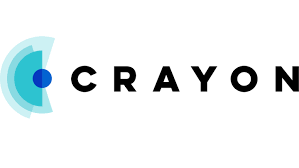
Best for: companies with few competitors to track, who are focused on revenue team enablement
Crayon is a Boston-based CI company that is another solid alternative to Klue. Using Crayon’s platform, users and businesses can track their competitors’ digital footprints by studying their marketing, product launches, and pricing.
With this platform, you can monitor and analyze multiple research data points on your competitors, including
- Market strategy
- Human resource strategies
- Partners and investors
- Content and media strategies
- Customer support and reviews
- Public relations, news and events
- Web and online positioning, including branding and web copy
- Product packaging strategies
- Product pricing strategies
- Sales enablement
Crayon collects content about your competitors from online and offline sources and stores them in one place, easily accessible to users. It uses advanced artificial intelligence (AI) & machine understanding (ML) functionality, flagging critical information and displaying actionable insights from millions of sources, saving precious time on research and analysis.
Crayon also provides real-time data and historical analysis of your competitors, so that you can track their evolution. Moreover, you can integrate Crayon into your workflow, allowing team members to receive alerts, newsletters, and relevant data across Slack, Salesforce, Microsoft Teams, and other internal tools.
Many industries—including retail, technology, finance, pharmaceutical, and software—use Crayon’s platform to keep up with market trends, drive better sales, and reduce customer churn. However, Crayon may not work for companies who have a large amount of competitors to track, or who need to frequently modify the competitors they are monitoring. It still uses human analysts to process data, so scalability is a challenge.
Crayon Pros
- Automated real-time alerts
- Can offer more personalized competitor insights
- Cutting-edge AI and ML capabilities for data research
- Offers in-depth analytics and metrics
- Integrates with multiple tools, including Slack and Microsoft Teams
- Collects info from both online and offline sources.
- Custom reports and battlecards
- Intuitive and navigable platform
Crayon Cons
- Relatively costly option, at $15,000 per year
- No expert call library
- Less scalable than similar tools
- No way to track peers’ R&D intelligence on the platform
- No SEC filings, financial reports, and earnings estimates
- No industry-specific reports or thought leadership
- Content hosted outside its platform; it only provides URL links
- Lacks advanced search capabilities, such as keyword and synonym recognition, thematic search, and sentiment analysis
3. Semrush
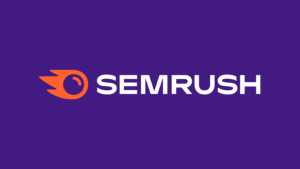
Best for: Search engine marketing, competitor keyword research, content marketing, and SEO
Semrush is a SaaS and content marketing tool enabling users to grow their online traffic organically using keyword research, analysis, and SEO techniques. It can help improve your rankings using pay-per-click (PPC) advertising, social media management, content marketing, and ecommerce competitor analysis.
Digital marketers, SEO professionals, content creators, small businesses, and website owners often rely on Semrush to grow and improve their online presence. With Semrush, users can track and analyze their website’s search engine rankings. On the competitive intelligence side, they can use Semrush to monitor competitors’ online marketing activities, track their ranking, review keywords used, and identify new opportunities to improve their web presence.
Semrush provides useful recommendations for how users can optimize their online marketing strategies, multiply their audience, and increase overall sales and conversions.
Semrush capabilities include:
- Lead generation
- Search engine rankings
- Social media management and analysis
- Website traffic analysis
- Keyword analysis and research
- PPC advertising data and analysis
- Competitor analysis and monitoring
- Backlink analysis
Semrush Pros:
- Provides a wide range of digital marketing tools and services
- Offers detailed insights into competitors’ online marketing activities
- User-friendly interface with easy-to-use features
- Provides in-depth analysis of website traffic and rankings
- Offers customized reports and recommendations for optimization
Semrush Cons:
- Can be overwhelming for beginners due to the wide range of features
- Some features are only available on higher-tier plans
- Keyword data accuracy is inconsistent
- No real-time data access
- Only sources data from search engines
- No expert calls available.
- No AI search capabilities
4. Salesforce
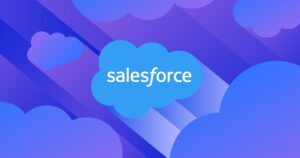
Best for: Customer relationship management
Another alternative to explore is Salesforce, a cloud-based customer relationship management platform. Businesses can use the Salesforce CRM to grow and manage customer relationships, sales, marketing, and customer support.
This CRM suite has tools businesses can use to automate sales processes and track potential leads. In addition, it can help identify opportunities for converting new customers, manage customer relationships, and analyze data for better business decisions.
Depending on your unique business needs, Salesforce offers a range of solutions. They include:
- Sales Cloud: This platform handles all your sales activities, including new leads and opportunities. It can also project your future sales and help manage your customer pipeline from when you acquire them to their first purchase.
- Marketing Cloud: From here, you can manage all your marketing activities, including email, social media advertising, PPC, and customer journey mapping.
- Service Cloud: This platform enables you to manage customers, including customer self-service, case management, and knowledge management.
- Commerce Cloud: If you run an online store, all your e-commerce activities run through this platform. You can manage product catalogs, orders, returns, shipping, and customer experience.
- Community Cloud: This platform can help you build online communities, including customer, partner,
Salesforce also offers a range of integrations and add-ons that allow your workflows to remain seamless across your business organization. Businesses of any size can streamline their sales, marketing, and customer service using Salesforce CRM, especially if they have complex sales processes or manage massive amounts of customer data.
Pros:
- Comprehensive set of sales, marketing, and customer service tools
- Highly customizable with a range of add-ons and integrations
- Cloud-based, allowing for easy collaboration and access from anywhere
- Robust analytics and reporting capabilities
- Active community of users and developers
Cons:
- Steep learning curve for new users
- Can be expensive, particularly for smaller businesses
- Requires ongoing maintenance and updates to ensure optimal performance
- Limited support for certain industry-specific needs, such as healthcare or financial services
5. Kompyte

Best for: enabling go-to market teams with the insights they need to beat the competition
Kompyte is a cloud-based competitive intelligence platform by Semrush that uses AI to monitor and analyze competitor data from various sources. It tracks your competitors across their website and reviews sites, social media, and search engines.
Kompyte can track multiple competitors at once, which enables businesses to benchmark their performance with multiple peers and identify areas for improvement. It can also generate unlimited battlecards to help users make better sales and marketing strategies for their businesses
Its intuitive user dashboard displays real-time updates about competitors’ activities from over 500 million data sources, including new product releases, go-to-market strategies, and website content updates.
Using its custom alerts feature, users can receive regular notifications when competitors make significant changes to their business strategy, such as price drops, rebranding, new investors, and partnerships.
Kompyte also uses integrations and add-ons, so that users can share insights across their organizations and keep all departments updated.
This platform is ideal for businesses looking to stay competitive in their respective industries. It can be especially useful for marketing teams, sales teams, and executives who want to monitor their competitors’ activities and adjust their strategies accordingly.
Pros:
- Real-time monitoring and alerts about competitors’ activities
- Customizable dashboards and alerts
- Easy-to-use interface
- Robust analytics tools
- Competitive pricing
Cons:
- Limited integrations with third-party tools
- Some users have reported issues with data accuracy
- Steep learning curve for new users
6. Contify
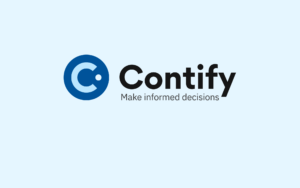
Best for: Competitive intelligence across multiple functions, including supplier, risk, media, and opportunity intelligence
Contify is another market and competitive intelligence platform with unique customer insights and market research from over 500,000 sources. Businesses and professionals can keep track of competitor strategy sales and marketing metrics on Contify.
Using artificial intelligence (AI) & natural language processing (NLP), Contify collects, analyzes, and curates company information from their websites, job boards, social media, regulatory portals, and market research reports.
Unlike some other platforms on this list, Contify goes beyond competitive intelligence. It can also track various developments, such as thought leadership, new innovations and technology, competitor business expansions, and operational and legal challenges. It offers services like market information, news tracking, and consumer insights.
It can also monitor case studies, recent trends, and key market players to help steer your business in a profitable direction. Contify provides access to a wide range of data related to market and competitive intelligence, including:
- Global and regional industry trends
- Significant market changes
- Regulatory changes
- Emerging threats and opportunities,
- Company and executive profiles
- Current and future business priorities
- Mergers and acquisitions analysis
- New technology and innovations
Users can collaborate and exchange knowledge through a user-friendly centralized platform using the news API. Teams and coworkers can share content across organizations successfully to generate better data-driven decisions.
Small and large businesses of all kinds can use Contify’s services. It is also well-suited for various market sectors, including consumer products, healthcare, technology, and finance. It is especially useful to businesses wanting to increase their market presence, roll out new products, or remain one step ahead of the competition. Also check Apptivo Alternatives
Contify Pros:
- Uses artificial intelligence & natural language processing to collect and analyze data
- Real-time updates and customizable alerts
- Provides a centralized platform for collaboration and knowledge sharing
- Offers a user-friendly interface with easy-to-use features
- Offers intelligence on multiple functions, including regulations, innovations, M&A, Industry themes, and patents
- Features smart translation feature for over 100+ languages
Contify Cons:
- Pricing ranges from $1000 to $10,000/month, making it a restrictive CI platform
- Some users have reported issues with data accuracy and customization options
- Lacks access to broker research
- Lacks sentiment analysis
- No expert calls
7. Factiva
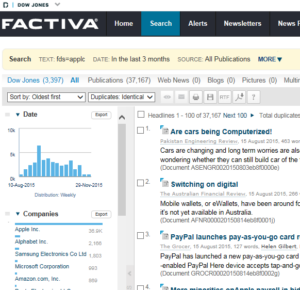
Best for: media intelligence; tracking the latest news updates in specific industries or companies and gaining access to a wide breadth of media content from various outlets
Another alternative to Klue is Factiva, a business research and intelligence tool owned by Dow Jones & Company. Factiva helps users identify and take advantage of new business opportunities by providing access to a global news database and deep archives within a research platform.
Factiva holds content from over 30,000 premium sources of global news and data, including the Dow Jones Newswire, Wall Street Journal, and Reuters. You can also access a trove of other licensed publications, trade journals, and regional papers from all over the world using the Factiva platform.
With advanced sharing tools, search functions, smart indexing, and content filtering, Factiva users can access corporate financials, company profiles, and other company documents. Users can customize dashboards and alerts, making it easy to monitor news and trends related to their search queries and interests.
Some of Factiva’s key use cases include:
- Competitive intelligence
- Application development
- Media monitoring and corporate communications
- Business development
- Sales intelligence
- Advanced analytics and data mining
- Customer engagement and marketing
Factiva’s biggest shortcoming is the lack of datasets beyond news and company information. Without access to expert calls, broker reports, and expert transcripts, Factiva fails to offer a complete overview of any trend, market, or industry.
Factiva Pros:
- Provides access to 33,000+ sources of news and information
- Robust search and filtering tools
- Supports APIs and third-party integrations
- Offers customizable dashboard and alerts to track trends and real-time news
- Supports sharing functionalities and newsletters
Factiva Cons:
- Often filters duplicate news and reports
- Limited filtering capabilities, resulting in extraneous search results
- May not always offer accurate data
- Lacks AI search capability to optimize searches
- No broker research or expert calls available
How to Choose an Alternative to Klue
Klue is one of the top competitive intelligence platforms in the industry, capable of delivering deep insights into the go-to-market strategy of other businesses. However, it has its limitations and may not be robust or advanced enough for some users.
If you are looking for an alternative to Klue, consider the following criteria in your search:
- Data coverage: Does your chosen platform offer access to multiple insights, perspectives, and data points? Some platforms come with premium content sets like broker research and expert calls, while others may only come with lower-value public data. Choose an option that serves your intelligence purposes and offers comprehensive features that will keep you informed and enhance your strategy.
- Data quality: Choose a Klue alternative with access to reliable, updated, and accurate data. Reputable customer reviews websites like G2 and TrustRadius can help you determine this factor.
- Pricing: Does your chosen tool fit within your budgetary restrictions? Some tools are more expensive than others, even with exceptional features. Choose a platform that meets your budget or offers maximum value for less.
- User interface and user experience: A market intelligence platform should streamline your workflow and enhance your research process. Make sure that the solution you select is truly benefiting you, whether by saving time, increasing confidence, widening the breadth of your research, or all of the above.
- Additional features: Each platform comes equipped with a unique set of features that are designed to make your job easier. Consider which features are most paramount to your process and workflow—do you need proprietary content sets, smart search functionality, sentiment analysis, customer analytics? Make sure the platform you choose supports your unique business needs.

